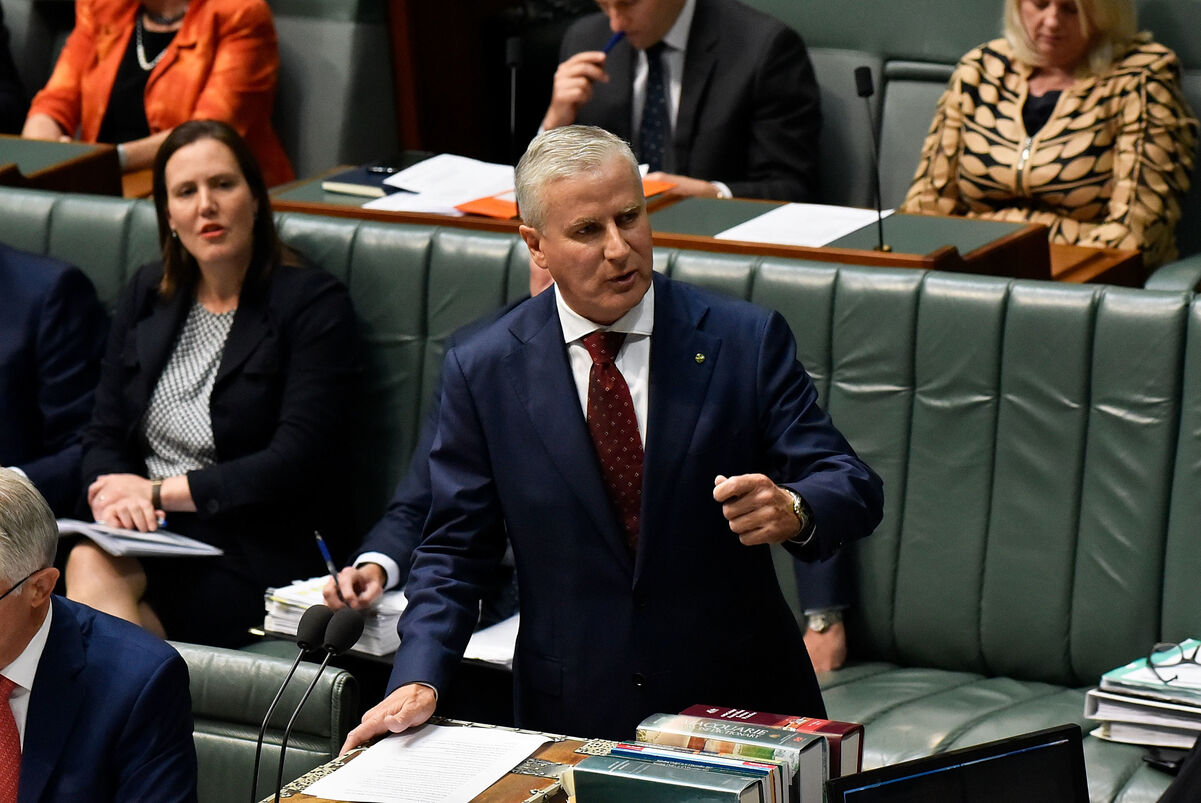Australia’s second-most-powerful politician isn’t sure what he thinks about conversion therapy.
Interim deputy Prime Minister Michael McCormack claimed in a Thursday speech delivered to the National Press Clubhis first since being appointed to the rolethat he doesn’t have an opinion “one way or the other” on the discredited “gay cure” treatment.
“I will be perfectly honest,” admitted the National’s leader. “I have not really looked into it enough to really make a view on it one way or the other.”
“I certainly will, but it’s not something that I have really explored,” he added.
Conversion therapy, sometimes referred to as “reparative therapy,” became a topic of national discussion following controversy in the Victorian Liberal Party state council. President Michael Kroger squashed a discussion over whether doctors and other medical professionals should be able to “offer counseling out of same-sex attraction or gender transitioning.”
In an unexpected turn of events, Minister for Health Greg Hunt defended the proposed debate as “freedom of speech” in an ABC interview.
“[P]eople are entitled to have different views, views that I disagree with,” Hunt told Radio National presenter Patricia Karvelas, even as he claimed not to be a supporter of conversion therapy. “What I do worry about is this constant view that nobody anywhere is allowed to have a different view.”
Conversion therapy is currently legal in Australia except in the state of Victoria, which became the first jurisdiction in the world to ban orientation change efforts on both LGBTQ adults and minors last year.
Malta and Taiwan are currently the only two countries which have taken action at the national level to forbid conversion therapy.
But since last year, Western Australia and the Australian Capital Territory have weighed enacting their own laws prohibiting the anti-LGBTQ practice, which has been condemned by a litany of medical groups in the country. The Australian Psychological Association and the Australian Medical Association have both denounced any attempt to “treat” gender identity or sexual orientation as a curable condition.
Despite scientific consensus labeling orientation change dangerous and ineffective, national action from Australia’s Parliament has been virtually nonexistent.
Victorian Premier Daniel Andrews lobbied for Prime Minister Malcolm Turnbull to take up the issue as a component of his national strategy on mental health. Chris, a survivor of conversion therapy, also urged Turnbull to “protect the most vulnerable and outlaw gay conversion therapy” in an emotional petition to the PM signed more than 33,000 times.
“So-called ‘conversion therapy’ causes depression, self-loathing and even suicide,” he said. “I prayed to God asking him to either heal me, or kill me. I was so depressed, I wanted to die.”
“The trauma associated with that part of my life still affects mehow could it not?” he asked. “How is this legal?”
Hunt, however, passed the buck back to state lawmakers. The minister claimed that outlawing conversion therapy isn’t an issue for the national government to decide because federal dollars hadn’t been used to fund orientation change efforts.
But as Australia’s The Age noted, that’s not exactly true.
The Melbourne daily newspaper reports that “gay conversion ideology has been quietly pushed in schools as part of the federal government’s chaplaincy program.” An investigation revealed that trans students at religious schools in Australia had been forced into faith-based counseling to prevent them from transitioning.
McCormack, however, pleaded for more time to get his feet wet in his new position, which he reminded the audience he has held for “a little over six weeks.” He took over when his predecessor, Barnaby Joyce, resigned due to a sex scandal.
But at the same time, the new deputy PM appeared to downplay the issue’s importance.
McCormack told those gathered that he believes his constituents are “more interested in making sure there are jobs there, making sure there’s downward pressure on the cost of living” than the lives of queer and trans youth.
This isn’t the politician’s first LGBTQ-related controversy. During his time as editor of Wagga Wagga’s Daily Advertiser in the 1990s, McCormack published a slew of op-eds in which he referred to queer people as “sordid” and proudly described himself as “homophobic.”
“Unfortunately gays are here, and if the disease their unnatural acts helped spread doesn’t wipe out humanity, they’re here to stay,” he said in a 1993 column on HIV/AIDS, for which he has since apologized.
McCormack reportedly voted in favor of marriage equality in November’s contentious postal vote.
Photo by Michael Masters/Getty Images
Don't forget to share:
Help make sure LGBTQ+ stories are being told...
We can't rely on mainstream media to tell our stories. That's why we don't lock our articles behind a paywall. Will you support our mission with a contribution today?
Cancel anytime · Proudly LGBTQ+ owned and operated
Read More in Impact
The Latest on INTO
Subscribe to get a twice-weekly dose of queer news, updates, and insights from the INTO team.
in Your Inbox













